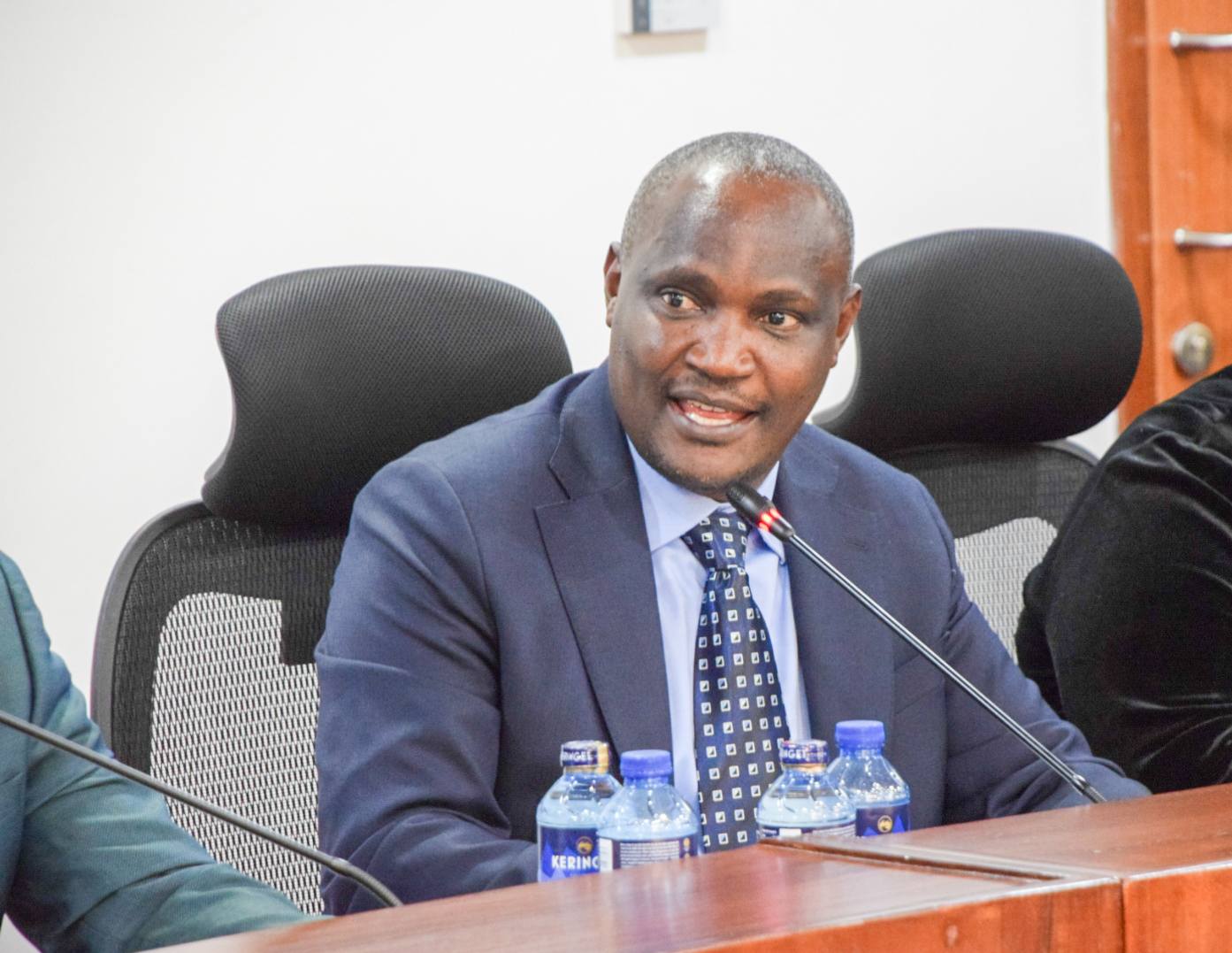Mbadi defends use of fuel levy to unlock Sh175 billion for roads

Mbadi criticised Nyoro’s remarks as misleading and accused him of spreading misinformation about an alleged plan to raise the levy by another Sh5.
The Treasury has come out strongly to defend the government's decision to securitise a portion of the fuel levy, with Cabinet Secretary John Mbadi insisting the process was transparent, lawful, and necessary to unlock stalled infrastructure projects.
Speaking in Nairobi during the launch of a petroleum sector report on Wednesday, Mbadi dismissed recent criticism by Kiharu MP and former Budget Committee chair Ndindi Nyoro, who claimed that the move had contributed to the recent spike in fuel prices.
He maintained that the additional Sh7 on top of the original Sh18 Road Maintenance Levy was redirected to secure funding for road construction, not to increase pump prices.
“There is nothing, nothing at all secret about securitisation. Everybody knows it. Where does he live if he doesn’t know we were securitising this money? We will continue doing it, and we have no apologies to make,” Mbadi said.
He explained that the government opted to redirect the extra levy towards clearing pending bills in the road sector, where contractors had halted work due to unpaid dues amounting to about Sh130 billion.
“We had a choice, either continue pouring that money into murram roads that are swept away every rainy season, or use it to revive major road projects. Contractors had downed their tools because we owed them about Sh130 billion,” Mbadi stated.
Through the securitisation plan, Mbadi revealed that the government has already raised over Sh60 billion. The target is to raise Sh175 billion, which, when added to the annual infrastructure budget of Sh57 billion, is expected to clear all pending road construction certificates within three years.
“In the current fiscal year, if we use even half of that and add it to our regular allocation, we will have about Sh120 billion, enough to settle outstanding bills. If we do the same next year, all ongoing road works will be completed,” he said.
Mbadi criticised Nyoro’s remarks as misleading and accused him of spreading misinformation about an alleged plan to raise the levy by another Sh5.
He clarified that while a proposal exists to add Sh5 more for future funding, the current levy remains at Sh25.
“The levy was initially at Sh18 per litre. This was raised to Sh25. What we did, we spent the additional Sh7 to secure a Sh175 billion loan to help us clear some pending bills, especially in the road construction sector,” Mbadi explained.
“We have a proposal to get an additional Sh5 from the kitty to add on Sh7 to secure more funding to pay pending bills and ensure those roads are well maintained away from seasonal repairs that have proved wasteful and an avenue for corruption.”
He went on to accuse unnamed individuals and interest groups of resisting the plan because it disrupted corrupt dealings that have long plagued the road sector.
“In the next three years, all the ongoing works will have been completed, and it will add value to the government. Someone does not want you to do that, and add the seven shillings back to the 18, to have 25 distributed, maybe to constituencies, so that it can be looted.”
He said some contractors have made profits as high as 40 percent from inflated murram road costs, while the public continues to suffer from poorly maintained infrastructure.
“It is absurd when a kilometre of murram road costs Sh10 million. Contractors make about 40 percent in profits. The money is paid immediately,” he added.
Mbadi’s sentiments were echoed by current Budget and Appropriations Committee chairperson Samuel Atandi, who defended the securitisation of the fuel levy as legal and necessary.
“There is nothing illegal about the securitisation of a proportion of the fuel levy. Obsession by Hon Ndindi Nyoro on this subject has everything to do with his objections, power hangover and entitlement over sharing of public resources,” said Atandi.
Nyoro, however, maintained his position, rejecting government claims that global oil prices were responsible for the increase in local pump prices. He insisted that domestic policies such as excessive taxation and the securitisation of the levy were to blame.
“In an oil-importing country like Kenya, the only effective tool the government has to stabilise fuel prices is adjusting taxes. Sadly, this is where the government is failing,” Nyoro said.
In June, members of the Public Debt and Budget Committee questioned Treasury Principal Secretary Chris Kiptoo over the legal basis of the move. They raised concerns about the lack of parliamentary approval for using the additional Sh5 from fuel taxes to back the loan, warning that it could be in breach of existing financial laws.
Roads and Transport Cabinet Secretary Davis Chirchir also defended the initiative, stressing that it was handled transparently, and all necessary legal approvals were obtained.
“We wish to reassure the public that there is no secrecy in this process,” Chirchir said in a statement.
He explained that the programme underwent due diligence and was approved by both the National Treasury and the Attorney General’s office. The Kenya Roads Board, the implementing agency, is also open to engage with Parliament, the media, and the public to provide clarity on the structure and benefits of the model.
